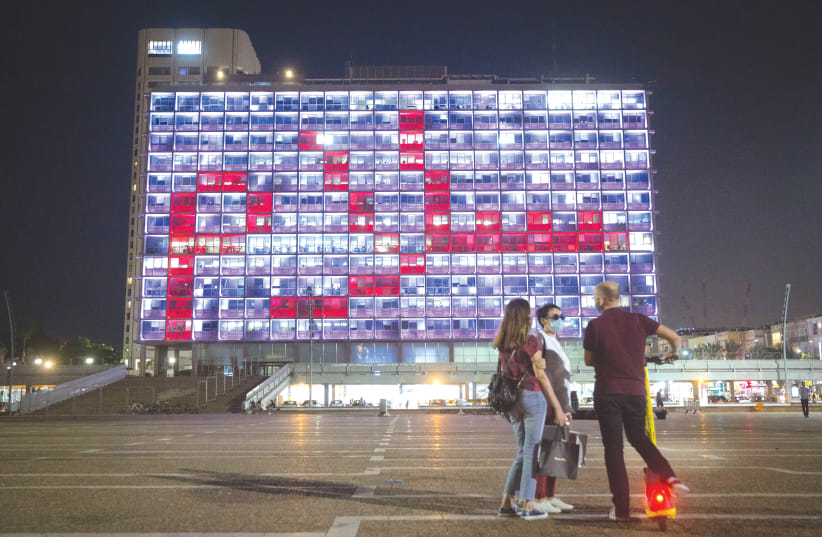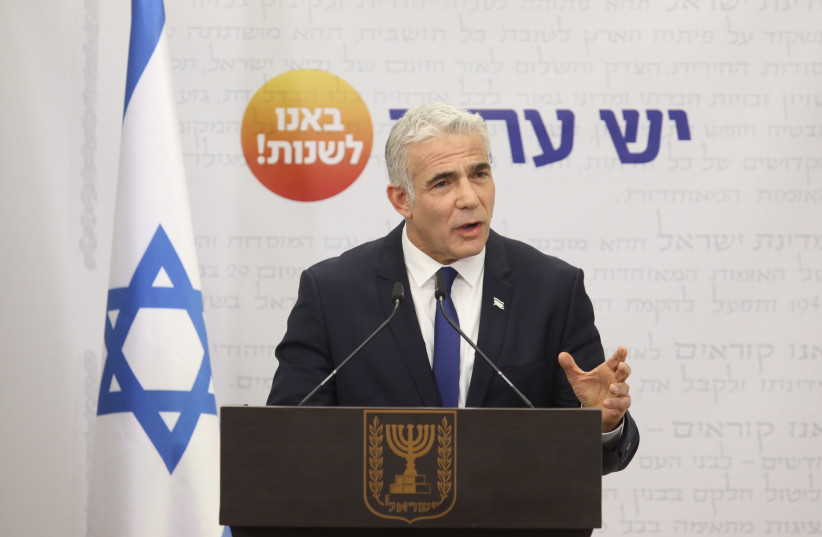There’s no expression that better demonstrates the new peaks Arab-Israeli relations have hit in recent years than a “picture is worth a thousand words.”
Just in the past month, Israeli officials and military forces were photographed alongside Arab counterparts.
Air force chief Maj.-Gen. Amikam Norkin was seen with the commander of the United Arab Emirate Air Force, Maj.-Gen. Ibrahim Nasser Mohammed al-Alawi, and senior Jordanian air force officer Gen. Mohammad Fathi Hiyasat, during his recent visit to Dubai; and a delegation of senior IDF officers, which included head of the Operations Division Maj.-Gen. Oded Basiok, was photographed with their Egyptian counterparts on Egyptian soil.
In addition, a series of military drills took place in the past year in which Israeli forces – including the IAF and the navy – were seen cooperating with neighboring militaries from Egypt, Jordan, the UAE and Bahrain.
A major change was also seen in the diplomatic sphere, which might not have received the same amount of visual coverage, but was publicly announced, a change in and of itself.
For the first time in almost a decade, we’ve seen an Israeli prime minister meeting with the Egyptian president in Egypt. Since assuming office five months ago, Foreign Minister Yair Lapid has visited the UAE and Morocco. President Isaac Herzog was also part of this trend, after announcing a formal conversation he held with King Abdullah of Jordan. Prime Minister Naftali Bennett held a face-to-face meeting with the king in Jordan, though the visit was kept secret and was announced only afterward.
In Israel’s Declaration of Independence, the country’s founding fathers wrote: “We extend our hand to all neighboring states and their peoples in an offer of peace and good neighborliness, and appeal to them to establish bonds of cooperation and mutual help with the sovereign Jewish people settled in its own land. The State of Israel is prepared to do its share in a common effort for the advancement of the entire Middle East.”
In the years following the establishment of the state, all Israel saw from its neighbors was war and hostility. The peak of this hostility came in 1967, when the Arab League declared the “Three Noes” in Khartoum: no peace with Israel, no recognition of Israel, no negotiations with it.
Since then, the attitude has changed in many countries, but overt cooperation – as we’ve witnessed recently – has not often been seen. Peace with Egypt and Jordan was dubbed a “cold peace,” in which there’s no state of war, but the relations are not warm.
The direction is right, but we’re not there yet. In the Arab street, some say that the peace with Israel is peace among governments, but not among the peoples. An Israeli citizen, for example, cannot walk freely and feel safe in the streets of Cairo or Amman.
This mostly has to do with the popular view of the Israeli-Palestinian conflict. But Israelis can do more to assimilate into the region.
The most basic step to change this is to start teaching Arabic at a younger age and to include spoken Arabic as part of our schools’ curricula.
As of now, Israelis study Arabic in the seventh to ninth grades and focus mainly on modern, standard Arabic, which is used in the media and in literature. A high school graduate who studied Arabic for six years is usually not able to conduct a conversation with his Arab neighbor. It is said that the entire Arabic teaching system in Israel is aimed at training young men and women ahead of possible service in the IDF’s Intelligence Corps.
In this age of peace, it is time to change the direction. Yes, having a functioning elite army is still unfortunately a necessity. But we have a window now in which we can actually create strong bonds between peoples.
All these photos and declarations by politicians and army personnel are positive, but they’re meant to serve a purpose, which reflects the interests of the governments.
This is the right time for us, the people, to show that Israel is more than just an exporter of military technology.
We have a lot to give, and a key step is learning the language of the region, which will help all of us communicate in the new language of peace.

